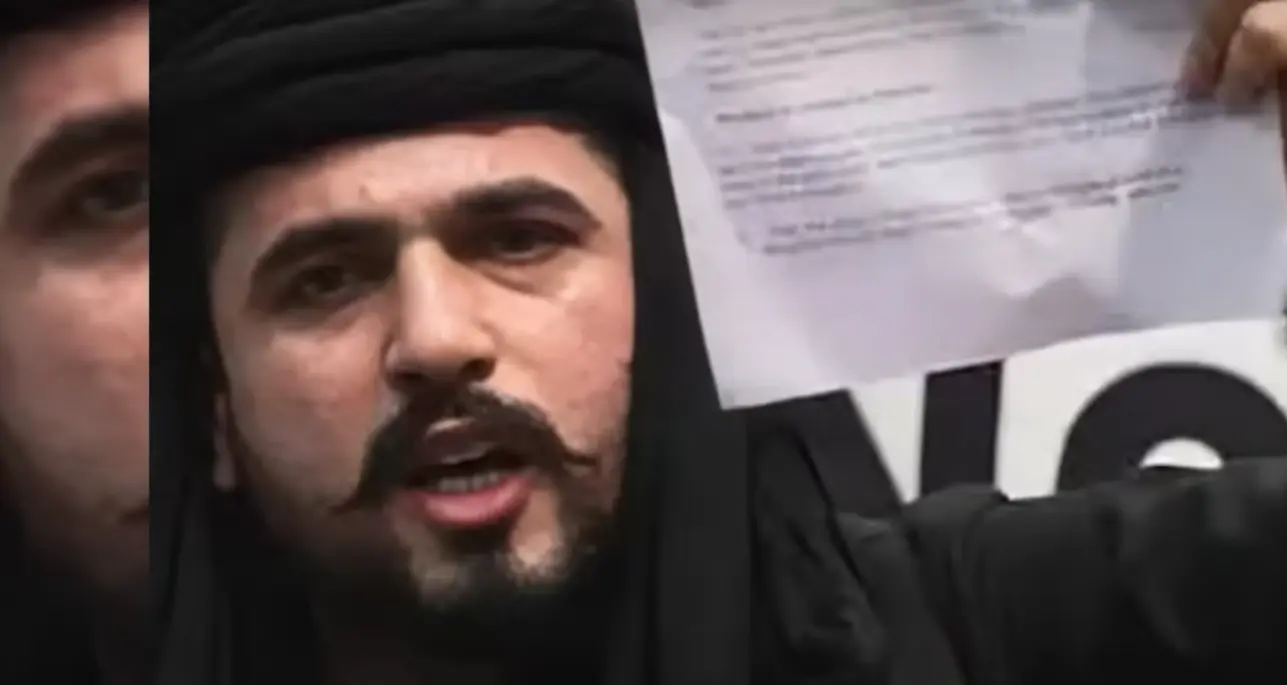
Baloch leader Mir Yar Baloch warns Donald Trump against a controversial oil deal with Pakistan
A Deal That Sparked Global Ripples
Baloch Leader Warns Trump – In a move that stunned geopolitical analysts and energy experts alike, U.S. President Donald Trump announced a trade agreement with Pakistan to jointly develop what he described as “massive oil reserves.” The announcement, made via his Truth Social platform, was met with swift and fiery opposition from Mir Yar Baloch, a prominent leader of the Baloch nationalist movement. In a public letter addressed to Trump, Baloch accused Pakistan of fabricating claims about its energy wealth and warned that the deal could have dire consequences for global security and regional stability.
The Geopolitical Context: Why Balochistan Matters
Balochistan, Pakistan’s largest province by area, is rich in natural resources including copper, gold, lithium, uranium, and rare earth elements. However, it remains one of the most underdeveloped and politically volatile regions in South Asia. For decades, Baloch nationalists have accused Islamabad of exploiting the province’s resources while marginalizing its people.
In May 2025, Balochistan declared itself an independent republic, a move not recognized by Pakistan or the international community. The Trump-Munir oil deal, which allegedly includes exploration rights in Balochistan, has reignited tensions and raised questions about sovereignty, resource ownership, and the ethics of foreign investment in disputed territories.
The Letter That Shook Washington
Mir Yar Baloch’s open letter to Trump was more than a protest, it was a geopolitical warning. He claimed that Pakistan’s military leadership, particularly Army Chief General Asim Munir, had “gravely misled” U.S. officials about the location and ownership of the oil reserves. According to Baloch, the resources lie within the sovereign territory of Balochistan, not Pakistan proper.
“These reserves are not in Punjab, which is the actual Pakistan,” Baloch wrote. “They belong to the Republic of Balochistan, currently under illegal occupation.”
He further warned that any partnership with Pakistan over Balochistan’s resources would empower the Inter-Services Intelligence (ISI), which he described as a “rogue agency” with a history of sponsoring terrorism.
Strategic Consequences: Financing Terrorism?
One of the most alarming claims in Baloch’s letter is that profits from the oil deal could be used to fund global terrorism. He argued that allowing Pakistan’s radicalized military and ISI to exploit Balochistan’s trillion-dollar reserves would directly finance jihadist groups hostile to India, Israel, and the West.
“It would endanger regional stability and could contribute to attacks reminiscent of 9/11,” the letter warned.
This assertion has sparked intense debate among counterterrorism experts, many of whom agree that resource wealth in unstable regions can become a financial lifeline for extremist networks.
The Reality Check: Does Pakistan Actually Have Oil?
Despite Trump’s enthusiastic announcement, energy analysts remain sceptical about Pakistan’s oil potential. According to the U.S. Energy Information Administration and other sources, Pakistan has only 353.5 million barrels of proven oil reserves as of 2016, barely 0.021% of the global total. The country consumes over 550,000 barrels per day and produces only about 88,000, making it heavily reliant on imports.
Recent seismic surveys in the Offshore Indus Basin have hinted at possible hydrocarbon formations, but no commercial drilling has confirmed viable reserves. Experts caution that the term “massive reserves” is premature and potentially misleading.
Political Fallout: Trump’s Gamble
Trump’s decision to strike a deal with Pakistan comes amid rising tensions with India and Russia. Just days before the announcement, he imposed a 25% tariff on Indian imports, citing its defense and energy ties with Moscow. The oil deal with Pakistan is seen by some analysts as a strategic counterbalance, but it risks alienating key allies and destabilizing South Asia.
Moreover, Trump’s statement—“Who knows, maybe they’ll be selling oil to India someday!”—has been criticized as tone-deaf, given the complex history between India and Pakistan.
Voices from Balochistan: “Our Land Is Not for Sale”
The Baloch community has rallied behind Mir Yar Baloch’s message, using the hashtag #BalochistanIsNotPakistan to amplify their cause. Activists argue that any foreign investment in the region must be contingent on the explicit consent of the Baloch people.
“Balochistan is not for sale. We will not permit Pakistan, China, or any foreign power to exploit our land or its resources without our consent,” Baloch declared.
This sentiment reflects a broader struggle for self-determination and control over natural resources—a theme that resonates in many indigenous and separatist movements worldwide.
What Happens Next?
The Trump-Munir oil deal is still in its early stages, with no confirmed details about the companies involved or the specific locations of exploration. However, the backlash from Baloch leaders and energy experts may force Washington to reconsider its approach.
International observers are calling for transparency, ethical investment practices, and respect for regional sovereignty. The United Nations has yet to comment on the situation, but pressure is mounting for a formal review of the deal’s implications.
A Deal Built on Sand?
The controversy surrounding the US-Pakistan oil deal underscores the dangers of geopolitics driven by misinformation and strategic ambition. If Pakistan’s claims about its oil reserves are indeed exaggerated, the deal could become a costly blunder, not just financially, but diplomatically.
For the Baloch people, the fight is not just about oil, it’s about identity, autonomy, and justice. And for the global community, it’s a reminder that resource diplomacy must be grounded in truth, transparency, and respect for human rights.
Also read – BLA’s Capture of Surab: A Major Blow & A Crisis for Pakistan’s Control Over Balochistan
Pakistan Forgotten Hindu Temples & Balochistan Independence Drive
Pakistan Unrest- Baloch Liberation Army’s Signal to India Amid 51 Strikes